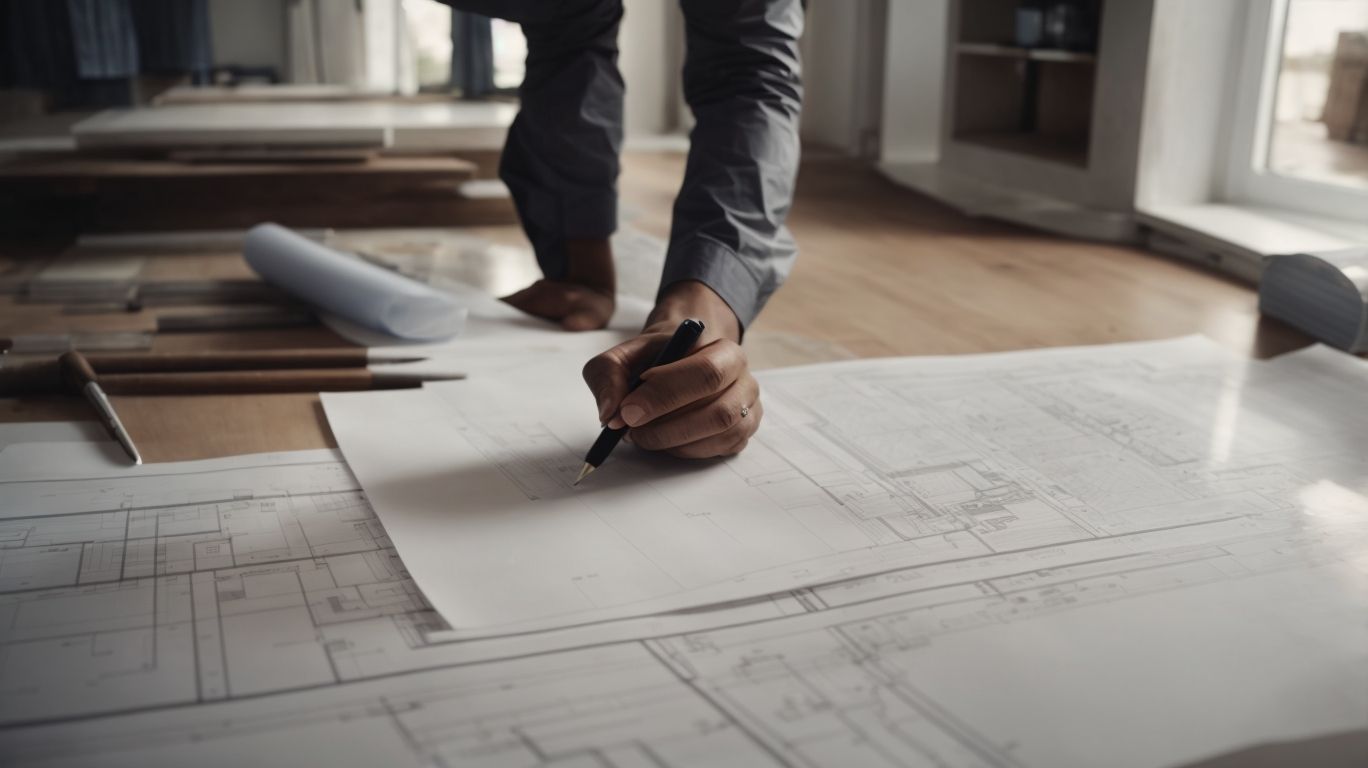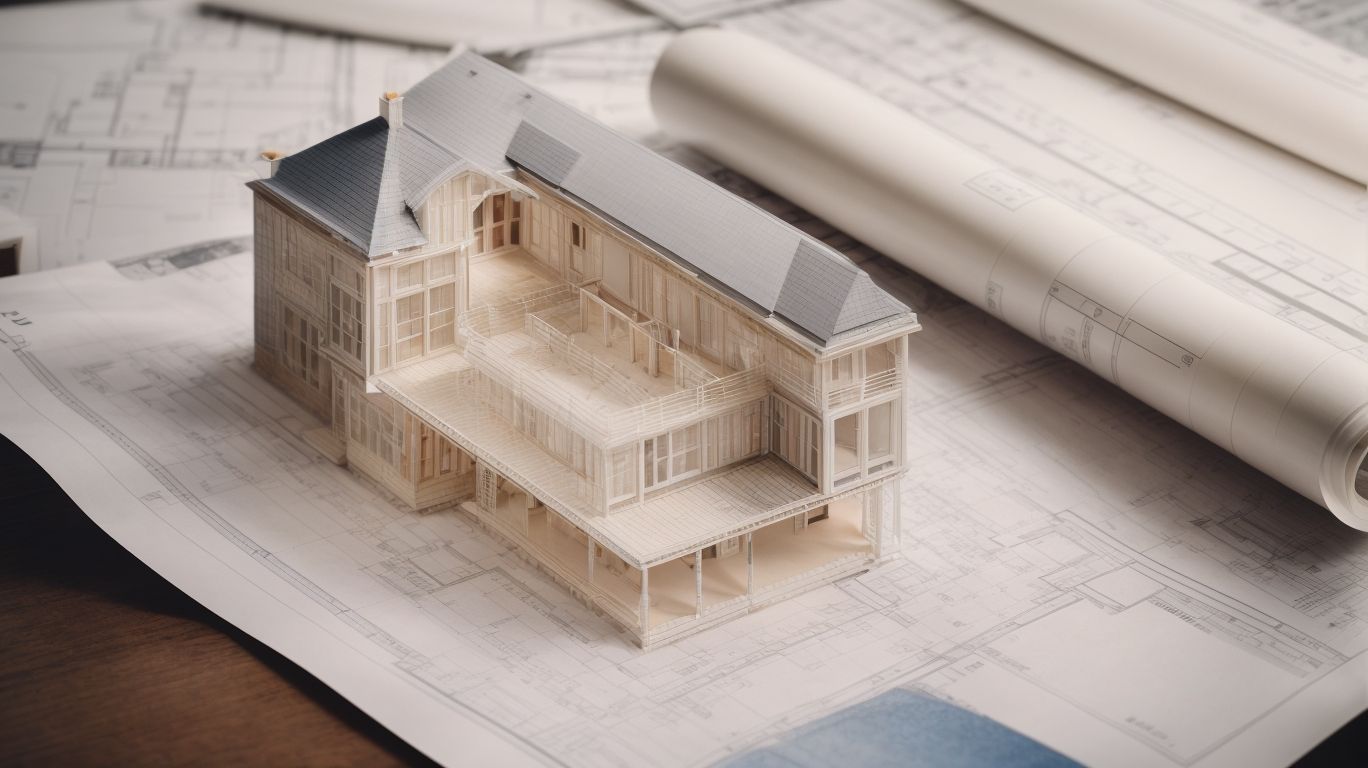
Maximizing Your Home’s Potential with Expert Structural Engineering
Are you looking to maximize the potential of your home and ensure its long-term stability and safety? Structural engineering is the key to achieving these goals.
In this article, we will explore the principles of structural engineering and its benefits for your home. We will also discuss common structural issues that homeowners face and how to find a reliable structural engineer. Whether you’re dealing with foundation problems, roof damage, or simply want to improve energy efficiency, understanding the role of a structural engineer is crucial. So, let’s dive in and discover how you can benefit from expert structural engineering.
What Is Structural Engineering?
Structural engineering involves the analysis, design, and construction of load-bearing structures, ensuring the stability and safety of buildings and infrastructure.
In the field of structural engineering, professionals utilize their expertise to design structures that can withstand a variety of forces and environmental conditions. These may include wind, earthquakes, and heavy loads. By taking into account factors such as materials and geometry, structural engineering plays a critical role in ensuring the durability and safety of buildings, bridges, and other infrastructure.
A thorough understanding of physics and mathematics is essential for structural engineers to accurately calculate the impact of different loads on structures. This knowledge allows them to make informed decisions that contribute to the overall stability and functionality of the built environment.
What Are The Key Principles Of Structural Engineering?
The key principles of structural engineering revolve around in-depth analysis, strategic design, and effective reinforcement to ensure the stability and integrity of buildings and infrastructure.
These principles form the backbone of every structural engineering project. Through meticulous analysis, engineers assess the loads and forces acting on a structure, allowing them to devise precise design strategies that distribute these forces efficiently.
The incorporation of reinforcement materials, such as steel and concrete, adds strength and durability, safeguarding against potential failure. The marriage of these principles results in structures that not only stand the test of time but also contribute to the safety and advancement of society.
How Can Structural Engineering Benefit Your Home?
Maximizing your home’s potential through expert structural engineering can lead to significant renovation and improvement, enhancing its value and ensuring long-term stability and safety.
It’s crucial to recognize the value that professional structural engineering adds to your home. By enhancing the design and structure, it not only ensures safety but also presents an opportunity to expand and renovate your living space.
This can result in an increase in property value, making it a wise long-term investment. Structural engineering offers the potential to address existing issues, optimize space, and implement modern design elements, all contributing to creating a more desirable and valuable residence.
Ensures Structural Integrity
One of the paramount benefits of structural engineering for homes is the assurance of structural integrity, serving as a foundation for successful renovation, maintenance, and long-term safety.
This can greatly impact the overall stability of a home, ensuring that it can withstand the test of time and various environmental factors.
By incorporating structural integrity into home improvement projects, homeowners can enhance the durability and resilience of their properties.
The careful consideration of load-bearing walls, roof structures, and foundation stability contributes to the overall safety and functionality of the home.
Focusing on structural integrity enables renovations and maintenance efforts to be more effective, resulting in lasting improvements.
Increases Safety and Security
Structural engineering enhances the safety and security of homes by ensuring compliance with rigorous safety codes and standards, thereby providing peace of mind for homeowners.
Structural engineers play a crucial role in safeguarding structures from natural disasters. They use advanced engineering techniques and materials to protect buildings from earthquakes, floods, and strong winds.
Through meticulous analysis of loads, stresses, and potential weak points, structural engineers ensure that buildings can withstand unforeseen challenges and external pressures. They also contribute to the development of innovative security measures, reinforcing the stability and durability of residential structures. This ultimately creates a secure environment for inhabitants.
Maximizes Space Utilization
Expert structural engineering maximizes space utilization, offering opportunities for seamless expansion and renovation, allowing homeowners to optimize their living environment.
Structural engineers utilize innovative designs and materials to create dynamic living spaces that cater to evolving needs and lifestyles. Their careful planning and implementation of support systems enable efficient utilization of space, allowing homeowners to transform their homes into versatile and functional environments.
Through strategic placement of load-bearing elements and utilization of advanced structural techniques, these professionals empower individuals to make the most of their living spaces and adapt them to changing requirements.
Improves Energy Efficiency
Incorporating structural engineering solutions can lead to improved energy efficiency, embracing innovative and sustainable technologies to reduce environmental impact and enhance cost-effectiveness for homeowners.
Sustainable design solutions involve utilizing materials and techniques that promote energy conservation and waste reduction in building and infrastructure construction. This can include incorporating passive solar design and green roofs to optimize natural light and ventilation, reducing the need for artificial heating and cooling. These advancements not only benefit the environment, but also offer long-term cost savings for property owners, making sustainable design a practical and attractive choice for future construction projects.
What Are The Common Structural Issues In Homes?
Homes often encounter common structural issues such as foundation problems, structural instability, roof damage, and water damage, necessitating expert analysis and timely repair interventions.
Structural issues, if left unattended, can lead to more severe problems down the line. Foundation problems, in particular, can jeopardize the stability and safety of the entire home.
To avoid costly and extensive repairs, it is crucial for homeowners to promptly address any signs of structural issues. Undertaking regular inspections and promptly repairing any damage can help maintain the structural integrity of the home, ensuring a safe and secure living environment for its inhabitants.
Foundation Problems
Foundation problems can significantly impact a home’s stability and safety, requiring strategic reinforcement and expert interventions to ensure long-term structural integrity.
Uneven floors, cracked walls, and misaligned doors are common issues that can arise in a home’s foundation. These problems not only pose potential risks to the inhabitants but can also compromise the overall value of the property. Promptly addressing these issues is crucial to avoid costly repairs.
The stability and reinforcement of a home’s foundation are essential for its structural soundness and maintaining a safe living environment. Seeking professional guidance is imperative to effectively tackle these issues and prevent any further damage.
Structural Instability
Addressing structural instability in homes demands thorough assessment and targeted improvement measures to safeguard occupants and protect the property from potential hazards.
This process involves a comprehensive evaluation of the building’s structural integrity, identifying weaknesses, and devising effective solutions to mitigate risks.
Without proactive measures, underlying structural issues can compromise the safety of the inhabitants and lead to costly damages. By prioritizing assessment and improvement, homeowners can enhance the resilience of their dwellings, ensuring a secure environment for daily living.
Striving towards structural stability not only fosters peace of mind but also contributes to the long-term preservation of the property’s value.
Roof Damage
Roof damage poses a critical concern for homes, necessitating regular inspection and proactive maintenance to prevent structural compromise and water infiltration.
This proactive approach not only safeguards against leaks and water damage, but also extends the lifespan of the roof.
Neglecting routine inspections can lead to unnoticed wear and tear, escalating minor issues into major repair projects. Infiltration of water can cause hidden structural damage, leading to safety hazards and costly repairs.
Therefore, homeowners should prioritize regular inspections and maintenance to address roof damage promptly and ensure the longevity of their property’s most vital protective component.
Water Damage
Water damage can jeopardize the structural integrity of homes, requiring timely renovation and repair actions to mitigate potential long-term consequences and ensure a safe living environment.
Water damage should be addressed promptly to avoid potential issues like mold growth, weakened foundations, and compromised structural elements. Renovation and repair efforts are crucial in restoring affected areas, preventing further deterioration, and maintaining the property’s value. Neglecting water damage can lead to costly repairs and pose health risks to occupants. Proactively addressing the damage helps maintain the overall integrity and safety of the home.
How Can You Find A Reliable Structural Engineer?
Finding a reliable structural engineer involves thorough research, seeking recommendations, verifying professional licensing and certifications, and discussing project details, fees, and contractual terms.
When looking for an engineer, it’s important to consider their experience and past projects to ensure they have the necessary expertise for your specific needs. Recommendations from trusted sources, such as other professionals or previous clients, can also provide valuable insights.
It’s crucial to verify the engineer’s professional credentials, including licenses and certifications, to ensure they meet the required standards. Additionally, discussing project details, fees, and contractual terms upfront can help establish a clear scope of work and avoid misunderstandings.
Research And Ask For Recommendations
Conducting thorough research and seeking recommendations from trusted sources can significantly aid in the assessment of a reliable structural engineer for your project needs.
When it comes to ensuring the safety and success of your project, it’s crucial to assess the track record and credibility of a structural engineer. This can be done by examining their past projects, client testimonials, and professional affiliations.
Additionally, seeking recommendations from industry professionals or consulting with peers who have experience in similar projects can offer valuable insights into the engineer’s expertise and reliability. By conducting thorough research and assessment, you can make an informed decision when selecting a structural engineer for your project.
Check For Proper Licensing And Certifications
Verifying the proper licensing and certifications of a structural engineer is crucial to ensuring their professional competence and adherence to industry standards. These qualifications serve as a testament to the engineer’s knowledge, skill, and commitment to upholding the ethical and technical aspects of their profession.
By adhering to industry standards, they demonstrate their accountability and dedication to delivering quality work. Clients can also have peace of mind, knowing that they are entrusting their projects to a reliable and capable professional who meets the necessary requirements.
Validating the licensing and certifications of a structural engineer is a fundamental step in promoting safety, reliability, and excellence in the construction and engineering industry.
Inquire About Past Projects And Experience
Inquiring about a structural engineer’s past projects and experience provides valuable insights into their capabilities and expertise in handling diverse renovation and construction challenges.
Clients can gain a deeper understanding of an engineer’s approach to complex renovation projects and their ability to navigate construction challenges. This showcases their problem-solving skills and innovative solutions.
By examining the engineer’s past work, clients can assess their ability to tackle various structural issues and ensure they possess the necessary knowledge and experience to deliver high-quality and reliable outcomes.
Discuss Fees And Contracts
Openly discussing fees and contractual terms with a structural engineer is essential to establish a transparent and mutually beneficial consultation and project engagement.
This open dialogue is crucial for ensuring that both parties have a clear understanding of the financial aspect of the project and the obligations outlined in the contract.
Transparency regarding fees and terms can help prevent misunderstandings and conflicts down the road, fostering a more collaborative and productive working relationship.
By openly addressing these aspects, it lays the groundwork for a successful and harmonious collaboration between the client and the structural engineer, ultimately leading to the desired project outcomes.




No Comments